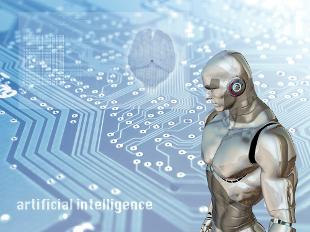Many are worried. Stephen Hawking, Elon Musk, Bill Gates, and several others have expressed concern about the disappearance of unskilled jobs due to automation and AI.
Hawking has said the rise of AI is likely to “decimate jobs in the middle class”.
In what is billed as the first legislative step in the preparation for fourth Industrial revolution in the EU , the European Parliament proposed a draft plan on June, 2016, calling robots to be classified as ‘electronic person(s)’. The draft presses owners to pay social security for the robots they possess. The proposal also demands a registry for autonomous robots to be legally accounted for. In February, a vote by the full Parliament is to take place on the proposed resolution.
Need to classify robots as ‘electronic person’
The proposal primarily budgets for the fact that emerging technologies such as artificial intelligence (AI) and machine learning may mature to surpass human intelligence in the future. Robots’ ability to learn from experience and take independent decisions has made them suitable for human-like interaction with its environment. In future, if a robot commits a mistake or omits a task, authorities should be able to trace back to the manufacturer or owner to check if the robot could have avoided the harmful behaviour.
Through this legislation, manufacturers and owners could be held accountable for the machine’s action.
Logic of legislation
While a framework to regulate robotics is essential, the need for one is ‘imminent’ and not ‘immediate’, believes Patrick Schwarzkopf, the head of one of the Germany’s largest industry associations. He said that legislation like this would be needed “in 50 years, but not in 10 years”. A legislative framework around self-driving cars is probably a more immediate need. […]
read more – copyright by economictimes.indiatimes.com


Many are worried. Stephen Hawking, Elon Musk, Bill Gates, and several others have expressed concern about the disappearance of unskilled jobs due to automation and AI.
Hawking has said the rise of AI is likely to “decimate jobs in the middle class”.
In what is billed as the first legislative step in the preparation for fourth Industrial revolution in the EU , the European Parliament proposed a draft plan on June, 2016, calling robots to be classified as ‘electronic person(s)’. The draft presses owners to pay social security for the robots they possess. The proposal also demands a registry for autonomous robots to be legally accounted for. In February, a vote by the full Parliament is to take place on the proposed resolution.
Need to classify robots as ‘electronic person’
The proposal primarily budgets for the fact that emerging technologies such as artificial intelligence (AI) and machine learning may mature to surpass human intelligence in the future. Robots’ ability to learn from experience and take independent decisions has made them suitable for human-like interaction with its environment. In future, if a robot commits a mistake or omits a task, authorities should be able to trace back to the manufacturer or owner to check if the robot could have avoided the harmful behaviour.
Through this legislation, manufacturers and owners could be held accountable for the machine’s action.
Logic of legislation
While a framework to regulate robotics is essential, the need for one is ‘imminent’ and not ‘immediate’, believes Patrick Schwarzkopf, the head of one of the Germany’s largest industry associations. He said that legislation like this would be needed “in 50 years, but not in 10 years”. A legislative framework around self-driving cars is probably a more immediate need. […]
read more – copyright by economictimes.indiatimes.com
Share this: